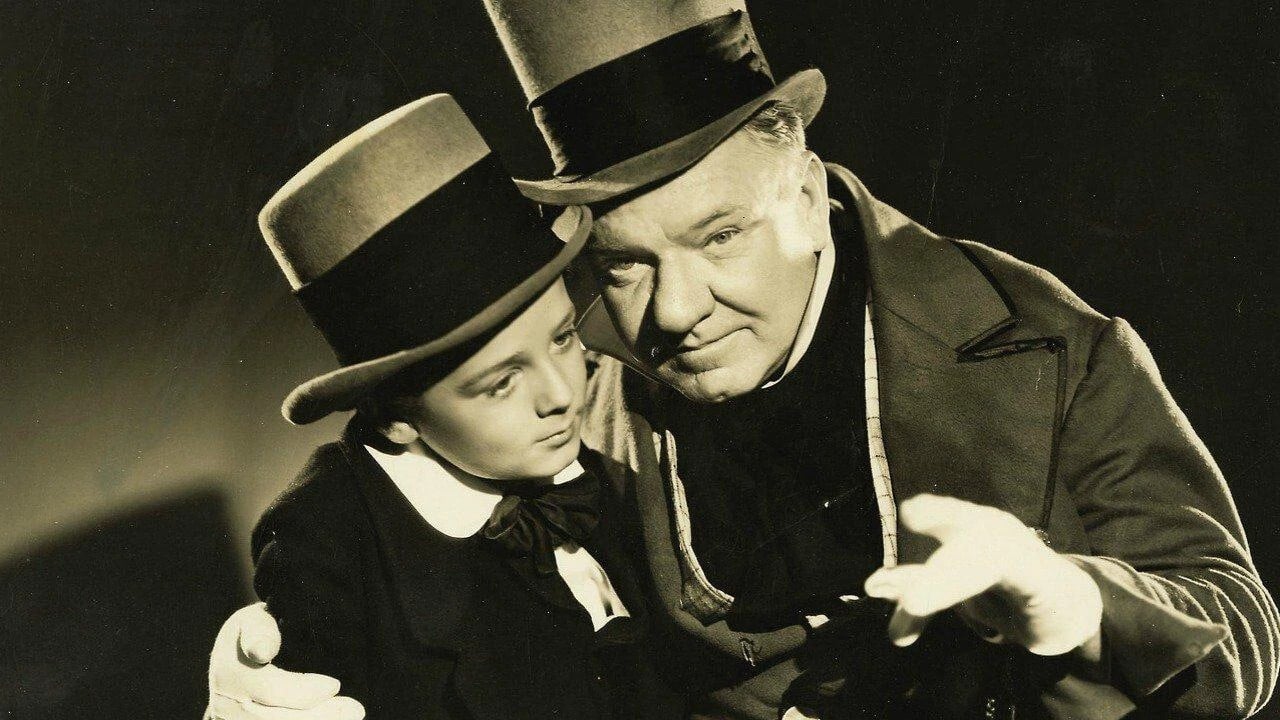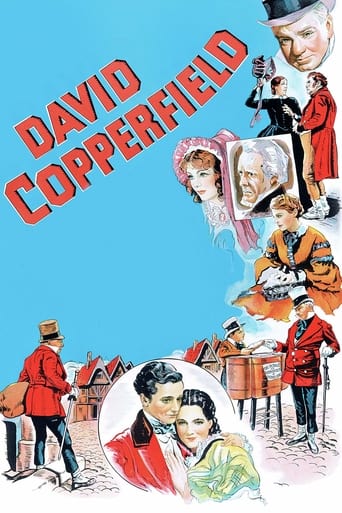



hyped garbage
Disappointment for a huge fan!
I was totally surprised at how great this film.You could feel your paranoia rise as the film went on and as you gradually learned the details of the real situation.
View MoreFun premise, good actors, bad writing. This film seemed to have potential at the beginning but it quickly devolves into a trite action film. Ultimately it's very boring.
View MoreDickens heroes are always complex characters. They often have flaws and bad judgment that get them into trouble. There are routine forces working against them, be they societal or individually human. David is brought up by a doting mother who is quite weak. When his father dies, his stepfather (Basil Rathbone) has no time for him. He is a burr in his saddle and wants to get rid of him as quickly as possible. He is cast out. As he grows he finds another woman to marry who is not unlike his mother. He makes the acquaintance of a cad who claims to be his friend. Through all this are amazing scenes of the dark English countryside and the oceans with their clashing waves. Like most Dickens books, there are a host of minor characters who inhabit the picaresque novel. Mr. McCawber, Peggoty, Uriah Heep, and on and on. Copperfield's trust in these folks directs his future. Freddie Bartholomew is quite good as the very young David. He was the best of the child actors of his day. W.C. Fields has his best moment on the screen.
View MoreDavid Copperfield is born after his father's death and lives with his mother and nurse Peggotty. As a child, his mother marries Murdstone while he is away with the Peggottys and Little Em'ly in an upside-down boat on the beach. Murdstone is a cold man and his harsh sister Jane stays with them. His weak mother submits to them and he suffers Murdstone's cruelty. His mother dies in childbirth. Murdstone intends to crush his spirit and sends him to work in London. He is taken care of by the kindly but inept Micawber (W.C. Fields). Micawber is sent to debtors' prison and he runs away to his aunt Betsey Trotwood and the wacky Mr. Dick. His life improves. Betsey refuses to let the Murdstones take him back. He goes to school staying with Mr. Wickfield and young Agnes. The devious Uriah Heep works for Mr. Wickfield as his clerk. As a young man, he is well learned and a writer. Agnes is his close friend. Micawber comes back into his life. He runs into his charming friend James Steerforth who was the headboy in school. Steerforth helps him woo Dora Spenlow. Steerforth charms and then dishonors Emily who is still with the Peggottys.There is a stiffness to the acting like an old fashion play. It's basically an old black and white Masterpiece Theatre. There isn't anything bad about that but it's not really my taste. The acting is broad and old fashion. Freddie Bartholomew does an admirable charismatic job for such a young age. He holds the lead very well for his half of the movie although he does a lot of fake crying. With so much material to stuff in, the movie can be ragged as it moves from one section to the next.
View MoreWhile there have been many versions of this famous Charles Dickens tale of the long-suffering kid who grew up to be a dashing young hero in spite of his rough beginnings, this ranks as the most famous and definitely one of the most beloved of all the movie versions of Dickens tales. The film is at its best in the first half with Fredddie Bartholomew as the young boy, born after the death of his father, and watching his long-suffering mother (Elizabeth Allan, also of "A Tale of Two Cities") end up in a horrid marriage to the evil Basil Rathbone which kills her. His step-father has no love for him in spite of having initially been kind (you know it was all an act), and Bartholomew turns to a series of eccentric adults who each influence his character and teach him the integrity he will utilize as a young man in helping his now grown child friends.Among those eccentrics are his mother's companion, the sweet Pegarty (the huggable Jessie Ralph), Aunt Betsy Trotwood (Edna May Oliver), the pickle-pussed spinster aunt who can't stand little boys but falls under his spell, and the slightly shady Micawber (W.C. Fields) who instills him with all sorts of worldly philosophies, some not always appropriate for a little boy. The result is one of those films with great moments, a slice-of-life period piece where plot is secondary to characterization and it is obvious that much was excised from the book to make it of appropriate movie length. This is why T.V. versions have expanded on the story, making it a two-part tale, particularly the outstanding BBC version with future "Harry Potter" stars Daniel Ratcliffe and Maggie Smith.In spite of the dragging in the second half which makes the lack of a linear plot more obvious, this version is lavishly produced, every artistic aspect of it superb, and directed with a precise attention to detail by George Cukor. Sometimes with all of these eccentrics, the film takes on a cartoonish structure, and not every character is fleshed out as strongly as Dickens originally wrote them to be. The shady character played by future "Topper" Roland Young may make some children wince with his "Grinch" like presence, and the nasty characters played by Rathbone and "sister" Violent Kemble Cooper (one of the all time nasty women on film) could give them nightmares.It is ironic that the best moments of the film dramatically speaking are those when the young David truly suffers, especially when he shows up at Aunt Betsy's looking a bit like Oliver Twist. Once Frank Lawton takes over as David grows up, the pacing slows down, although an amusing sequence at the ballet is one of the more memorable moments of the film.
View MoreGeorge Cukor, one of the best American master directors, orchestrated one of the best screen adaptations of one of the most beloved novels in the English language. "David Copperfield", the 1935 MGM treatment of the classic, is still one of those pictures that will always be enjoyed by movie fans of all ages.The ingredients that went into the production of Charles Dickens' novel could only have been done by the studio with vast resources as it was the case with MGM. From the superb art direction of the legendary Cedric Gibbons to the Oliver Marsh cinematography and the musical score of Herbert Stothart, all the elements under director George Cukor fell in the right place.The superb casting adds to the glory of the end product. Freddie Bartholomew was one of the best child actors of that era and in his effortless appearance as the young David, set the right tone for the staging of the novel. Add to that the impressive Edna May Oliver who practically steals the first part of the film. W.C. Fields made a wonderful Micawber and the supporting roles were played by a fabulous array of actors not easily matched then, or now. Lionel Barrymore, Frank Lawton, Basil Rathbone, Roland Young, Lewis Stone, Madge Evans, Margaret O'Sullivan, Elsa Lanchester, and the rest, contributed to bring Dickens' immortal story to life.A film to cherish thanks to the vision of George Cukor.
View More